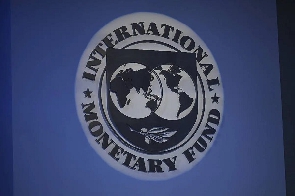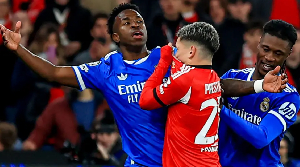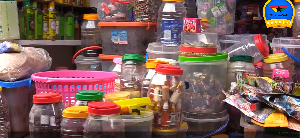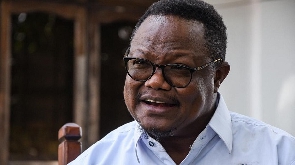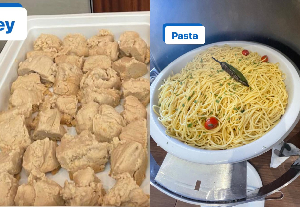The quest for financial freedom devoid of multinational interference seems to constantly come back to bite Ghana in the years past till date.
Since Ghana gained independence on March 6, 1957, till date [2023], the country has sought financial assistance from Bretton Wood institutions such as the International Monetary Fund for a whooping 17 times.
While there are constant public debates and conversation surrounding reasons for the cyclical return to the IMF and World Bank, Ghana’s economic managers have somewhat failed in many areas which bother on revenue generation, curbing loopholes in the tax system, cutting down expenditure and honoring debt obligations.
Ghana is currently under an IMF programme for the 17th time. The country is expected to receive in tranches a US$3 billion bailout under an Extended Credit Facility for a three-year period.
GhanaWeb Business takes a look at the 17 times that Ghana has sought IMF bailout with information provided on the Fund’s website.
1966 to 1969:
The first IMF bailout request from Ghana occurred in 1966 after the overthrow of Ghana’s first president, Dr. Kwame Nkrumah, by the then National Liberation Council (NLC).
During this period, the IMF and World Bank were invited by the new government which had taken over, to manage the economy, supervise the privatization of state corporations with the view of turning them into profitable institutions among other things.
This bailout, which was under a ‘Standby Arrangement’ ended in 1967.
Right after this, Ghana sought financial assistance from the IMF thrice; from May 25, 1967 to May 24, 1968, and then from May 28, 1968 to May 27, 1969. Also, from May 29, 1969 to May 28, 1970, another IMF deal was agreed under a ‘Standby Arrangement.
1979 to 1980:
Due to an array of mismanagement, corruption related acts and coups, Ghana’s economy derailed and the country went back to the Bretton Woods institution under the Ignatius Kutu Acheampong regime.
After the June 4 Revolution which saw the emergence of the late Flt. Lt. Jerry John Rawlings taking office, the economic situation took another down turn forcing the country to seek IMF assistance.
During that era, Ghana then went again for a ‘Standby Agreement’ with the IMF on January 10, 1979 to 1980.
August 1983 to 1992
From August 3, 1983 to August 02, 1984, August 27, 1984 to December 31, 1985, from October 15, 1986 to October 14, 1987 and then November 6, 1987 to November 9, 1988, Ghana experienced major food shortage, high inflation and among others that led the country to depend on donor support and assistance from the world.
Ghana again depended on the IMF to help address the situation till the then PNDC leader, Jerry John Rawlings invited the IMF to help with a Structural Adjustment Facility Commitment in November 6, 1987 and was extended in November 9, 1988 till it ended in 1992.
1995 to 2009:
During this period, global financial organizations like the World Bank and IMF embarked on debt cancellation measures, which resulted in the creation and enhancement of debt relief schemes under the HIPC (Highly Indebted Poor Countries) Initiative
The IMF during the period supported Ghana from June 30, 1995 to May 2, 1999 and then from May 3, 1999 to November 30, 2002.
Ghana again went back to the IMF in 2003 as a HIPC country, under the then-President John Agyekum Kufuor.
Under Kufuor's government, Ghana borrowed from the IMF between May 9, 2003 and October 31, 2006 and then returned in July 15, 2009 to July 23, 2012.
2015 to 2019
Under the John Dramani Mahama government, Ghana suffered a major power crisis, known as 'Dumsor', and Ghana was forced to run to the IMF again to borrow an amount of $918 million loan to strengthen the cedi and the ailing economy.
2022
Under President Nana Addo Dankwa Akufo-Addo, the government requested a $3 billion dollar loan aimed at restoring macroeconomic stability and debt sustainability in the country and among other reforms in the financial sector to address the current economic crisis.
MA/NOQ
Watch the latest edition of BizTech below:
Click here to follow the GhanaWeb Business WhatsApp channel
Ghana’s leading digital news platform, GhanaWeb, in conjunction with the Korle-Bu Teaching Hospital, is embarking on an aggressive campaign which is geared towards ensuring that parliament passes comprehensive legislation to guide organ harvesting, organ donation, and organ transplantation in the country.
Business News of Thursday, 21 December 2023
Source: www.ghanaweb.com

